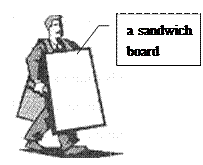

| Ä꼶 | ¸ßÖÐ¿Î³Ì | Ä꼶 | ³õÖÐ¿Î³Ì |
| ¸ßÒ» | ¸ßÒ»Ãâ·Ñ¿Î³ÌÍƼö£¡ | ³õÒ» | ³õÒ»Ãâ·Ñ¿Î³ÌÍƼö£¡ |
| ¸ß¶þ | ¸ß¶þÃâ·Ñ¿Î³ÌÍƼö£¡ | ³õ¶þ | ³õ¶þÃâ·Ñ¿Î³ÌÍƼö£¡ |
| ¸ßÈý | ¸ßÈýÃâ·Ñ¿Î³ÌÍƼö£¡ | ³õÈý | ³õÈýÃâ·Ñ¿Î³ÌÍƼö£¡ |
¿ÆÄ¿£º¸ßÖÐÓ¢Óï À´Ô´£º²»Ïê ÌâÐÍ£ºÍêÐÎÌî¿Õ
| Brief Introduction | Lacking motivation makes you feel (71) ¡ø to do anything and even feel hopeless, lost and stuck. However you can still feel inspired sometimes though you don¡¯t have (72) ¡ø . | |
| (73) ¡ø to feel inspired | Connect the dots | ¡ñSteve Jobs¡¯ success indicates that the dots will somehow connect in the future, (74) ¡ø the fact that you don¡¯t have the slightest clue or perfectly laid-out road to where you go currently. ¡ñJust (75) ¡ø yourself that you will reach your goal, which is the first step towards inspiration and motivation. |
| Perfect the environment | ¡ñThe worst thing is that you¡¯re (76) ¡ø to work in an area where you are unable to work. ¡ñYou are supposed to build an ideal workplace and ideal time, and then you will be likely to feel better and (77) ¡ø more. ¡ñA perfect environment will naturally (78) ¡ø you feel inspired and motivated. | |
| Don¡¯t work so hard | Forcing your way into taking action could be a sign that you are working too hard but (79) ¡ø on your goals could help you feel inspired and motivated to take real action. | |
| Summary | (80) ¡ø of forcing yourself to work hard every day, you need to trust yourself, build a favorable environment, spend time putting yourself in a state and surely you will get inspiration to guide you towards achieving your dreams. | |
²é¿´´ð°¸ºÍ½âÎö>>
¿ÆÄ¿£º¸ßÖÐÓ¢Óï À´Ô´£º²»Ïê ÌâÐÍ£ºÍêÐÎÌî¿Õ

²é¿´´ð°¸ºÍ½âÎö>>
¿ÆÄ¿£º¸ßÖÐÓ¢Óï À´Ô´£º²»Ïê ÌâÐÍ£ºÍêÐÎÌî¿Õ
|
²é¿´´ð°¸ºÍ½âÎö>>
¿ÆÄ¿£º¸ßÖÐÓ¢Óï À´Ô´£º²»Ïê ÌâÐÍ£ºÔĶÁÀí½â
²é¿´´ð°¸ºÍ½âÎö>>
¿ÆÄ¿£º¸ßÖÐÓ¢Óï À´Ô´£º²»Ïê ÌâÐÍ£ºÔĶÁÀí½â
²é¿´´ð°¸ºÍ½âÎö>>
¿ÆÄ¿£º¸ßÖÐÓ¢Óï À´Ô´£º²»Ïê ÌâÐÍ£ºÔĶÁÀí½â

²é¿´´ð°¸ºÍ½âÎö>>
¿ÆÄ¿£º¸ßÖÐÓ¢Óï À´Ô´£º²»Ïê ÌâÐÍ£ºÔĶÁÀí½â
²é¿´´ð°¸ºÍ½âÎö>>
¿ÆÄ¿£º¸ßÖÐÓ¢Óï À´Ô´£º²»Ïê ÌâÐÍ£ºÔĶÁÀí½â
²é¿´´ð°¸ºÍ½âÎö>>
¹ú¼ÊѧУÓÅÑ¡ - Á·Ï°²áÁбí - ÊÔÌâÁбí
ºþ±±Ê¡»¥ÁªÍøÎ¥·¨ºÍ²»Á¼ÐÅÏ¢¾Ù±¨Æ½Ì¨ | ÍøÉÏÓк¦ÐÅÏ¢¾Ù±¨×¨Çø | µçÐÅթƾٱ¨×¨Çø | ÉæÀúÊ·ÐéÎÞÖ÷ÒåÓк¦ÐÅÏ¢¾Ù±¨×¨Çø | ÉæÆóÇÖȨ¾Ù±¨×¨Çø
Î¥·¨ºÍ²»Á¼ÐÅÏ¢¾Ù±¨µç»°£º027-86699610 ¾Ù±¨ÓÊÏ䣺58377363@163.com